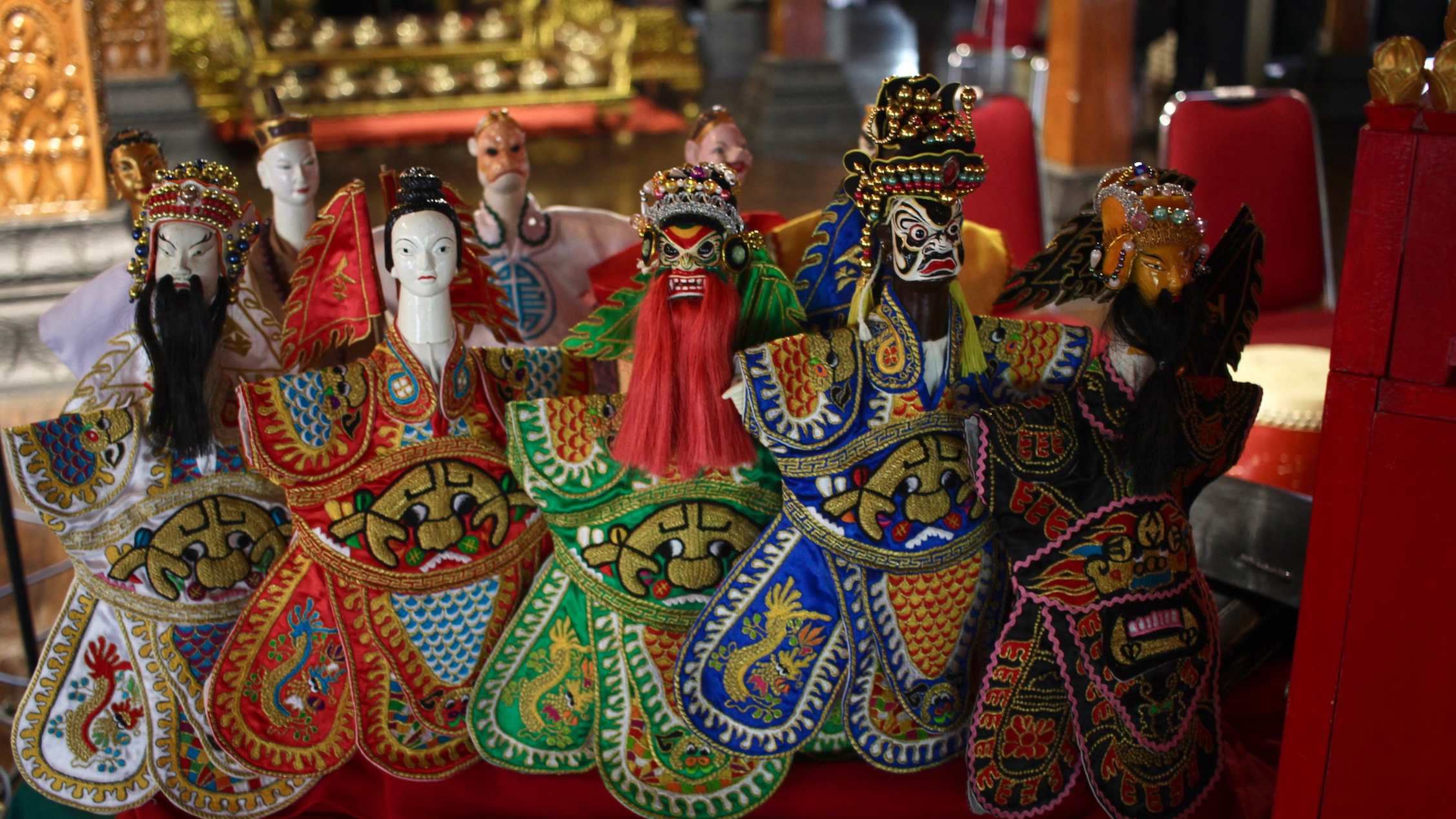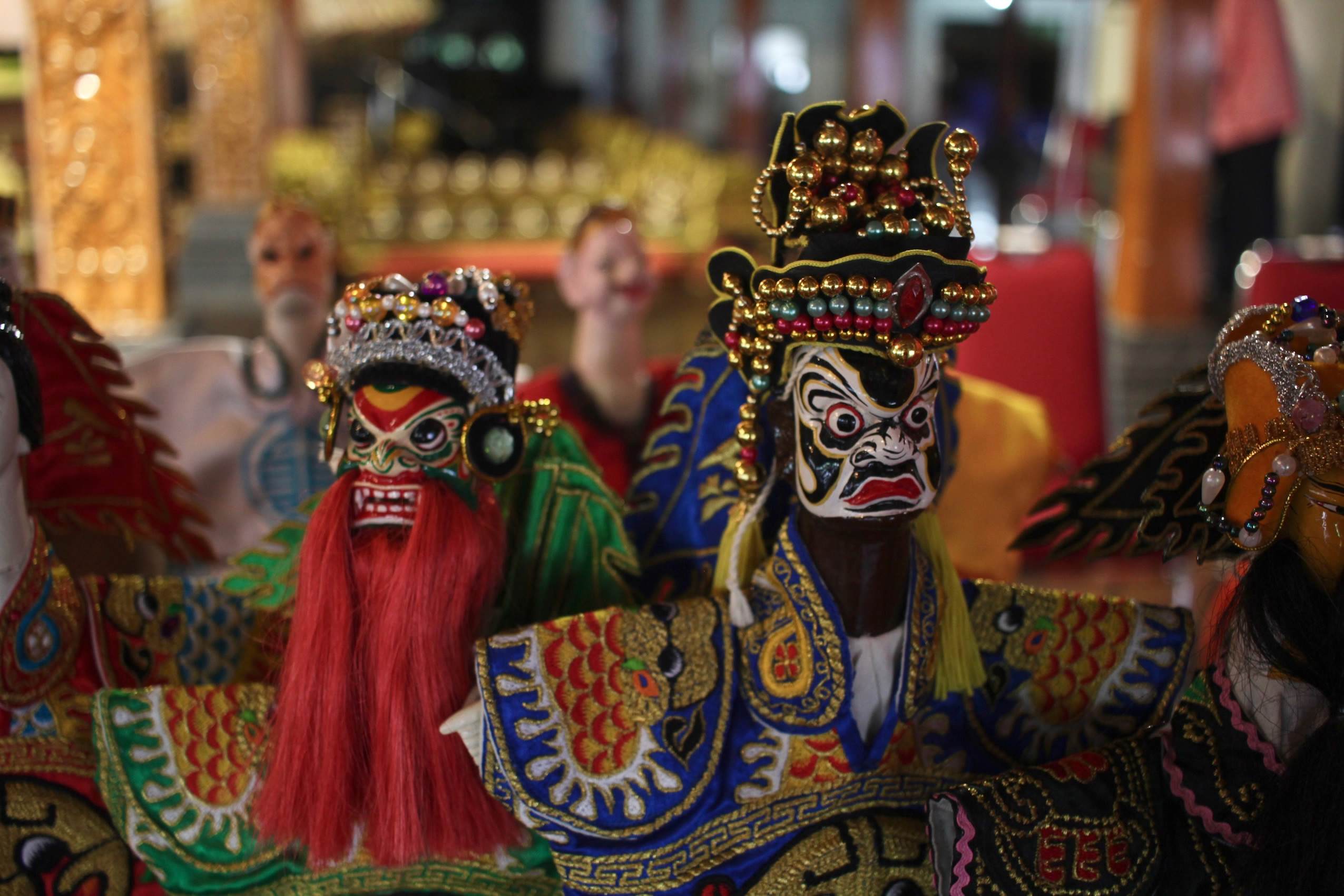
Culture
12:42, 22-Mar-2018
Young Indonesians reviving Chinese Potehi Puppet culture
By Silkina Ahluwalia

It is almost a forgotten art form. But young performers at Indonesia's Rumah Cinta Wayang are aiming to revive the traditional Chinese puppet art known as Potehi Puppet. Rumah Cinta Wayang, loosely translated as the Puppet House of Love, was co-founded by Dwi Retno Astuti. Retno, who is a proud Javanese, has always been interested in Indonesian art. She said thousands of years of Javanese art has always been inspired by Chinese traditions.
“If we look way back to the 16th century, we can see that ancient Indonesian art, especially carvings, has a lot of Chinese influence in it. I am trying to introduce people the strong cultural relations between Indonesia and China that have existed for centuries,” said Retno.
Now, she’s gathering the young generation to learn a new form of Chinese art, the Potehi Puppet.
Retno’s community performs at all sorts of events. The performance used to be exclusive to places of worships only but today, it can be found in universities, shopping malls and at large gatherings. Retno said that help to promote the art to all generations, adults and children.
One of them hails from China… the fascinating Potehi Puppet. The entire performance boasts distinct Indonesian characteristics with ancient Chinese cultures… many which were brought by immigrants from southern China in the 16th century.

/CGTN Photo
/CGTN Photo
“Indonesia is rich in its puppet culture and we want to show that to the world especially the millennial generation. We still have a long way to go but we have started it. Potehi is just one form of art that has strong relations with Indonesia, especially the Javanese. By introducing this globally, we can show that Indonesia appreciates other cultures and it is a tolerant country,” Retno added.
The Potehi Puppet always features characters and storylines from Chinese legends. Retno has personally been advocating and educating audiences for 14 years. Despite shortcomings in convincing the millennials to appreciate this art form, Retno and her community has already succeeded.
During their event on World Puppetry Day, several young school students attended to watch the puppet performances. Many hadn’t heard of Indonesian puppets, let alone puppets inspired by Chinese legends. The event served as an education platform, where students can study the art form that has existed for thousands of years.
“I am personally responsible for introducing Indonesian puppets internationally. We hope that this event can introduce audiences to the many varieties of Indonesian puppets all the way from Java to North Sumatra. Storytelling is also important, we want people to enjoy the stories but also take something valuable from it for their daily lives," said Samodra Sriwidjaja of the International Puppet Union of Indonesia.
Retno stated although they aim to introduce Potehi Puppet internationally, she still does not want to lose the local Indonesian touch.
“We want to show the world that we are here to preserve Indonesian puppets, we should have an international approach but not to the extent where we lose our local 'flavors', you can say,” she said.
In Indonesia, Potehi Puppet not only serves as a form of entertainment, but the art has also become an important symbol of harmony and diversity in the country.

SITEMAP
Copyright © 2018 CGTN. Beijing ICP prepared NO.16065310-3
Copyright © 2018 CGTN. Beijing ICP prepared NO.16065310-3